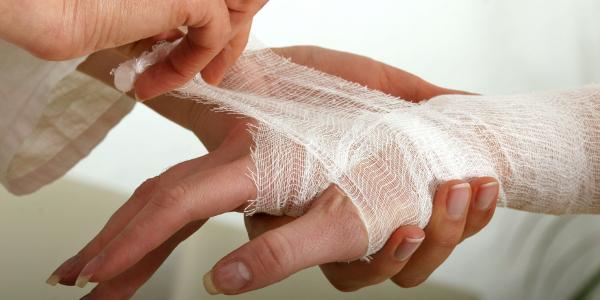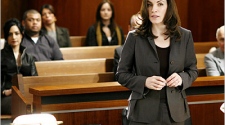If you have suffered an accident that left you seriously injured, it is important that you avoid these three potential mistakes that can make it more difficult for you to get the compensation settlement that you are entitled to for your injury, pain and suffering. By carefully following these tips you can meet the requirements of the insurance adjuster and the court, if necessary.
Don’t wait to receive medical treatment after a personal injury. If you delay a medical exam and put off getting treatment for your injuries, you are seriously jeopardizing your case. What you need to do is immediately seek medical treatment, x-rays, CT scans and other concrete evidence of your injuries. By receiving treatment you are building your case and preventing complications. If you delay, you lose credibility and you may not be able to substantiate the severity of your injuries or your pain and suffering later on. Your claim for compensation related to your injury depends on the expert testimony of your physician, your medical records and the reports of any emergency medical technicians called to the scene. It is vital that you provide documentation of your injuries in order to make a claim for financial reimbursement for hospital bills, lost wages and pain and suffering. If you are offered a medical evaluation following your accident, accept it then because it will help your case. If you delay, and cannot adequately substantiate your claim, you may be unable to recoup your damages later on.
Don’t ever lie to a judge or you’ll be found guilty of perjury. If you aren’t as seriously impaired by your injuries as you claim, you can damn the results of your case because chances are the defense has collected video and other evidence to support a claim that you were not injured, are faking or lying. Some private investigators will go to great lengths to collect such evidence. If you are not seriously injured, don’t try to build a case that you are. There have been cases where a person claimed to be unable to do any work and that they were disabled, and then wound up confronted at the hearing by the judge with a video provided by the defense showing the person engaged in heavy physical labor as evidence to the contrary.
Always be truthful about any injuries you’ve suffered and the way the pain you are experiencing affects your ability to remain gainfully employed. Never fabricate or exaggerate your physical symptoms of injury, because this can lead to a case dismissal and potential serious embarrassment for you and your lawyer. You can lose all credibility if you aren’t careful to make sure your testimony is truthful and accurate.
Another common mistake is that some people tell the insurance adjuster that they were uninjured immediately following the accident, only to develop serious chronic and debilitating pain later on. Not all disabling injuries are immediately apparent at the scene of an accident; but the damage may become apparent later on. Adrenaline and endorphins, released by your body during traumatic events, can prevent you from feeling the full extent of your injuries.
This is why it is crucially important to seek medical treatment following your accident, even if you feel fine or numb. You may not realize how severely injured you are and delaying treatment can lead to the development of complications and disability further down the road. It will be necessary for your health and the future of your claim to receive prompt medical treatment and not to delay getting an exam and any needed tests. The documentation of your injury is vital to your claim.
If you follow these important guidelines, in order to avoid these three common mistakes, you will greatly increase your chances of getting the financial settlement you deserve for your injury.
The aftermath of an accident is a stressful and hectic time but that doesn’t mean you can’t navigate recovery process aware of what will be required to substantiate your injury claim and receive the settlement you need to cover your damages. By avoiding delay in treatment, lying to the judge or telling the insurance adjuster you aren’t seriously injured; you can remedy these wrong ways to seek a settlement for your personal injury.















